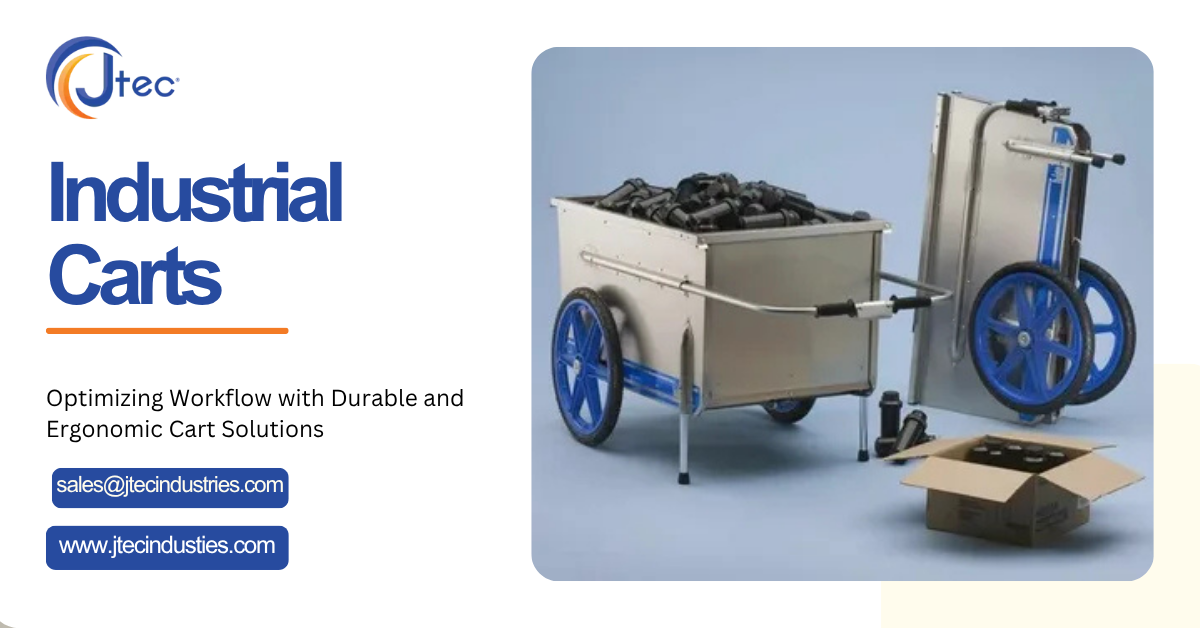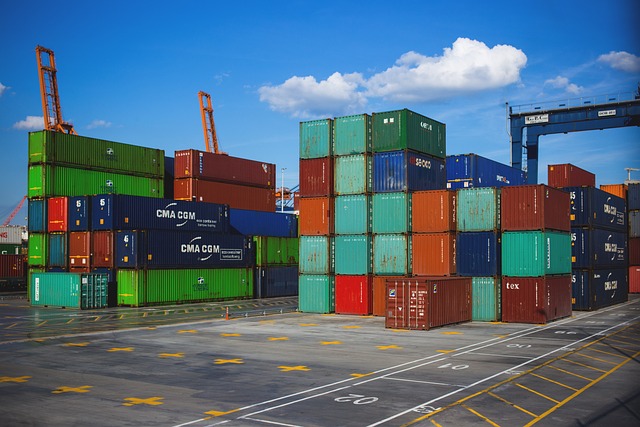How Industrial Carts Improve Productivity in Manufacturing

Strong 8k brings an ultra-HD IPTV experience to your living room and your pocket.
The ability to transport materials, tools, and goods efficiently can make or break a company’s operational flow. One of the most often ignored yet important elements in optimizing manufacturing processes is the use of carts. These versatile pieces of equipment play a pivotal role in streamlining operations, reducing downtime, and ultimately boosting productivity.
In this blog, we’ll explore how industrial carts contribute to improving productivity in manufacturing environments, highlighting their role in material handling, inventory management, and employee safety.
What are Industrial Carts?
Industrial carts are heavy-duty, transportation carts designed to move goods, tools, and materials within a manufacturing environment. They come in a wide variety of types, including platform carts, shelf carts, utility carts, and custom-built solutions tailored for specific tasks. Depending on the application, carts can be made from a range of materials, such as steel, aluminum, or plastic, and are typically equipped with durable wheels that make them easy to maneuver across factory floors.
Their primary purpose is to increase the speed and efficiency of material handling by minimizing manual effort and reducing the distance employees need to travel to perform tasks. When used correctly, carts can have a significant impact on both small- and large-scale manufacturing operations.
1. Streamlining Material Handling
One of the primary ways carts improve productivity in manufacturing is through streamlined material handling. In most factories, workers spend a significant amount of time moving parts, tools, and raw materials from one area to another. Whether it’s getting components to an assembly line or moving finished goods to the next stage of the production process, the quicker and more efficiently these items can be transported, the smoother the workflow will be. With ergonomic design options and various sizes, these carts can be customized to meet the specific needs of a production environment. This reduces unnecessary walking, lifting, and physical strain, allowing employees to focus on their core tasks, such as assembly or quality control.
Carts can be used to move car components, such as doors, wheels, and engine parts, from one station to another, reducing bottlenecks and ensuring that each assembly line is constantly supplied with the materials needed to maintain a fast production pace.
2. Reducing Downtime and Preventing Delays
Another critical benefit of carts is their role in reducing downtime. In a manufacturing setting, downtime often occurs when workers have to wait for materials or tools to be delivered to them. This can happen for various reasons, including delays in supply chains, inefficient transport systems, or workers having to search for missing items.
These carts help reduce downtime by offering an efficient means of transport that ensures materials are readily available at each workstation. By organizing tools and parts on carts, workers don’t need to waste time searching for items or waiting for materials to be delivered manually. Instead, everything they need can be stored on or within the cart, ready for use when required.
3. Enhancing Inventory Management
Inventory management is another area where industrial carts make a significant impact. Managing parts, tools, and materials efficiently is essential for ensuring that nothing is overstocked or understocked, which could lead to production delays or increased costs.
By using carts with built-in shelves, bins, or racks, manufacturers can create mobile storage solutions that make it easier to manage inventory. Workers can have immediate access to all the necessary parts, tools, or components, making it easier to keep track of quantities and minimize waste.
For instance, instead of having workers constantly go back to a central storage location to retrieve missing parts, they can simply have all the necessary items organized on the cart and taken directly to the work area. This reduces the risk of inventory being misplaced, ensures that the correct parts are always on hand, and allows for a more organized manufacturing environment.
4. Improving Employee Safety
Worker safety is a top priority in any manufacturing environment. Industrial carts contribute to security progress by reducing the need for workers to manually carry heavy loads. Carrying heavy materials can lead to physical strain, injuries, or accidents, which could result in costly workers' compensation claims and production delays. Employees are able to transport materials with minimal physical effort. Carts can be equipped with features like non-slip surfaces, safety locks, and stable frames to further reduce the risk of accidents. Moreover, workers can be trained to use the carts properly, ensuring they are used safely and effectively.
In addition, using carts helps reduce the amount of clutter on the factory floor. With designated areas for materials and tools, workers can move around the factory with greater ease and avoid tripping over obstacles, which helps improve the overall safety of the workspace.
5. Customization for Specific Needs
A special benefit of industrial carts is their customizability. Manufacturing processes vary greatly from industry to industry, and so do the needs of workers and production lines. These carts can be designed to fit specific workflows, whether it's for transporting small components, large parts, or hazardous materials.
Custom carts can include features like adjustable shelves, bins, or even special drawers for tools and components. This level of customization ensures that every task is optimized for the worker’s needs, improving efficiency and reducing errors. For example, in an electronics manufacturing plant, small parts carts can be customized with dividers to keep individual components organized and easily accessible.
Conclusion
Industrial carts are often underestimated in their ability to drive productivity in manufacturing environments. They play an important role in simplifying material handling, reducing downtime, improving product management, and improving safety. With their adaptability, carts are essential tools that can streamline production workflows, reduce operational costs, and increase overall efficiency.
Manufacturers who invest in the right carts tailored to their specific needs will experience tangible improvements in operational productivity, worker satisfaction, and bottom-line results. By reducing physical strain, improving organization, and ensuring materials are readily available, these carts provide the support necessary for manufacturing businesses to thrive in today’s fast-paced market.
Note: IndiBlogHub features both user-submitted and editorial content. We do not verify third-party contributions. Read our Disclaimer and Privacy Policyfor details.







